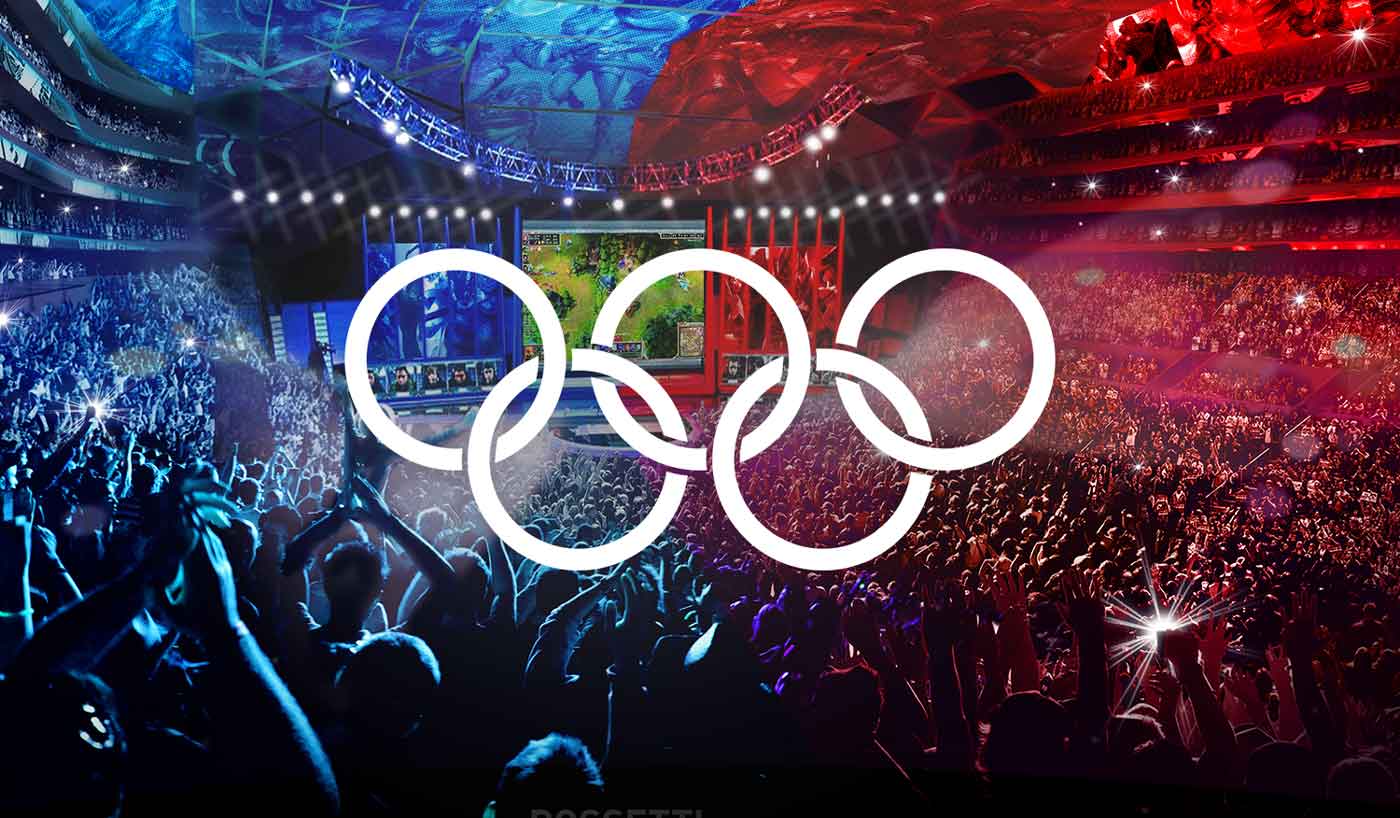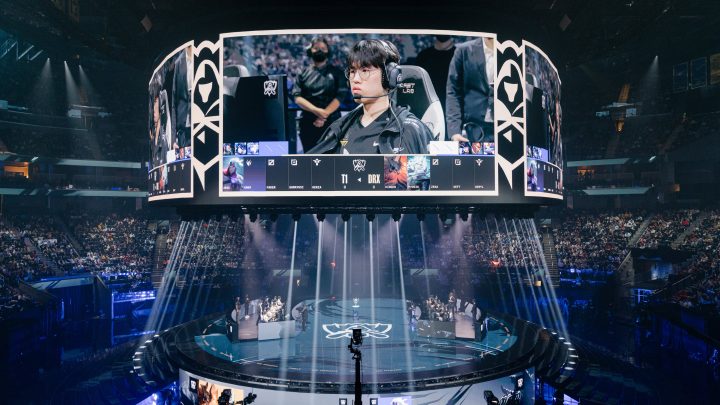
The inclusion of esports in the Olympics has generated a significant impact and sparked both excitement and controversy. Esports, which involve competitive video gaming, have garnered a massive global following in recent years, especially among younger generations. By bringing esports to the Olympic stage, the Games have seen increased engagement from new audiences and a massive surge in digital viewership. The question now begs, does this allow the Olympics to stay relevant and adapt to modern entertainment preferences or does it water-down the fundamentals of Olympic competitive sport?
Despite the positive impacts, including esports under the Olympic rings has faced criticism from various quarters. Traditionalists argue that esports lack the physicality and athleticism of conventional Olympic sports. (which does show a lack of understanding of how esports are sometimes played)
The journey of e-sports towards Olympic recognition has been gradual. The International Olympic Committee (IOC) first acknowledged e-sports’ potential cultural impact and began engaging with stakeholders in the gaming industry during the early 2010s. In 2017, esports made its first appearance in the Asian Indoor and Martial Arts Games, marking a significant step towards broader recognition was included as a demonstration sport at the 2018 Asian Games in Jakarta.

Earlier this year Singapore, hosted the first in-person Olympic Esports Week including 10 finals in the Olympic Esports Series 2023.
It began with the Olympic Esports Week Forum, which heard from industry leaders in technology, gaming, and real-world sports as well as top players such as Ewok and Jaime “Karma” Bickford.
Once competition began form the very first event, the Zwift cycling final, to the very last, the eFIBA on NBA2k23 exhibition, sports and gaming came together to produce an impressive show watched by huge numbers .
Tic Tac Bow (archery), Virtual Regatta (sailing), Just Dance (dance), WBSC eBASEBALL™: POWER PROS (baseball), Chess.com (chess), Tennis Clash (tennis), ISSF Challenge featuring Fortnite (shooting), and Gran Turismo 7 (motorsport) all also got their time in the limelight under the traditional Olympic Rings.
The shooting and motorsport competitions, played with large followings worldwide, understandably popular – but it was the Virtual Taekwondo event, the last final of the Olympic Esports Series 2023, which drew one of the biggest crowds of the entire Olympic Esports Week.
At the forefront of esports, worldwide is the Kiwi, Duane Mutu, we caught up with Duane found out more about who he was and got a positive glimpse into what some see as a controversial future.

Who is Duane Mutu?-
I am an NZ Maori with ties to the f
ar north Te Rarawa, Ngati Kahu but reside in Orewa on the sunny Hibiscus Coast. I have a wife, two kids, a dog, a cat, two mice and a fish. I went to uni and left to travel the world and spent time in Asia, Australia, and Europe before coming home. Throughout that journey I primarily worked in two sectors which I think are very similar – gaming and action sports.
I worked in UK launching Mambo surfwear and spent time at other surf brands too. I launched the NZ TV channel Garage TV which was a 24-hour action sport network. In gaming, I was lucky enough to launch the Nintendo Game Cube and worked with the biggest gaming brands like Ubisoft, Disney, EA. I have always been fascinated with both sectors and seen similarities. I grew up skating, surfing and snowboarding before it was mainstream and a lot people frowned upon the sector and its participants and that now is similar to esports. Nobody saw surfing and skating making the Olympics back when I started surfing, but that is true for Gaming now, and I have just returned from the first-ever Olympic esports week… history repeating.
Who or what who is Letsplay.live?
Letsplay.live is a company I created to grow the best video game players in NZ and we were very early to the sector- like globally early, it was created to promote NZ to the world but then we became a world leader in the space. Now LPL is seen as the leading esports media and tournament operator in the region and we deliver tournaments and content to all parts of the world with the best players, biggest game publishers and brands.
For those that live completely under a rock or never spoken with a teen. Describe e-sport – what is it, what it is not and brief development/ history and projected growth?

Esports is the term used to describe competitive video gaming. This can be 1v1, 3v3, 5 v5 or even a game like fortnite where it is 100 people. It is very similar to sport but with a digital playing field. The games vary as do the players so it looks more like actions sports- surfing being different to moto cross for example. For people who think esports is a passing phase, the video game sector is already bigger than movies and music combined so it is the largest entertainment sector in the world. People may feel that it is weird watching other people play games but isn’t that just sport? There are more people watching esport content globally than those that watch rugby! Esports is already one of the most watched sports on the planet. League of Legends (A video game) finals equalled the Superbowl in viewership.
Who needs who more?
Does E- sports need the Olympics or does the Olympics need E-sport?
The Olympics needs esports more than esports needs the Olympics but this true for all traditional sports. There is a decline in viewership on traditional sport globally, be that All Blacks, NRL, NFL etc hence why sports are trying to engage in video gaming. Gaming content is the most watched content globally but certainly in the youth demographic so it makes sense for sports to try and embrace this. It comes as no surprise that the Olympics is trying to bring gaming into the Olympic tent- if you speak with a 17-year-old anywhere in the world and asked them if they want to watch synchronised swimming or archery, or Fortnite, NBA2K or GT7 the answer will almost always be the gaming content. This is a way for the Olympics to modernise no different than offering breakdancing, surfing and skateboarding- it is to engage a younger demographic. Esports is no different.
How can E- sports be part of the Olympics when there is so little activity – the same questions were asked of chess and the IOC attitude was, “Mind sports, by their nature, cannot be part of the program.” Has this changed ?
The Olympics have gone a slightly different direction to start the journey into esports and have focussed primarily on “virtual sports” where the competitor is physically doing the activity in a digital environment. It is interesting you mention chess as that was one of the events at the OEW and the players played virtual chess. The likes of Zwift is a great example also where the athletes (of which some were former elite global cyclists) ride physical bikes and that propels them in a digital bike race. Just dance was another where the players danced on stage, and they were scored with the video game. This aligns to the Olympic Values and helps translate traditional athletes across the gaming space. The push back has really come from the gaming community who would prefer traditional esport titles like DOTA, LOL , CSGO but I am sure this is only a start, and in time more of the traditional esports will appear at the Olympics. What I know is that the Olympics will not leave esports now as they have announced another Olympic esport week in 2025 so it will just be whether gaming does show up as a medalled sport in either summer or winter Olympics in time or it stays as its own Olympic event.
Watch this space.







